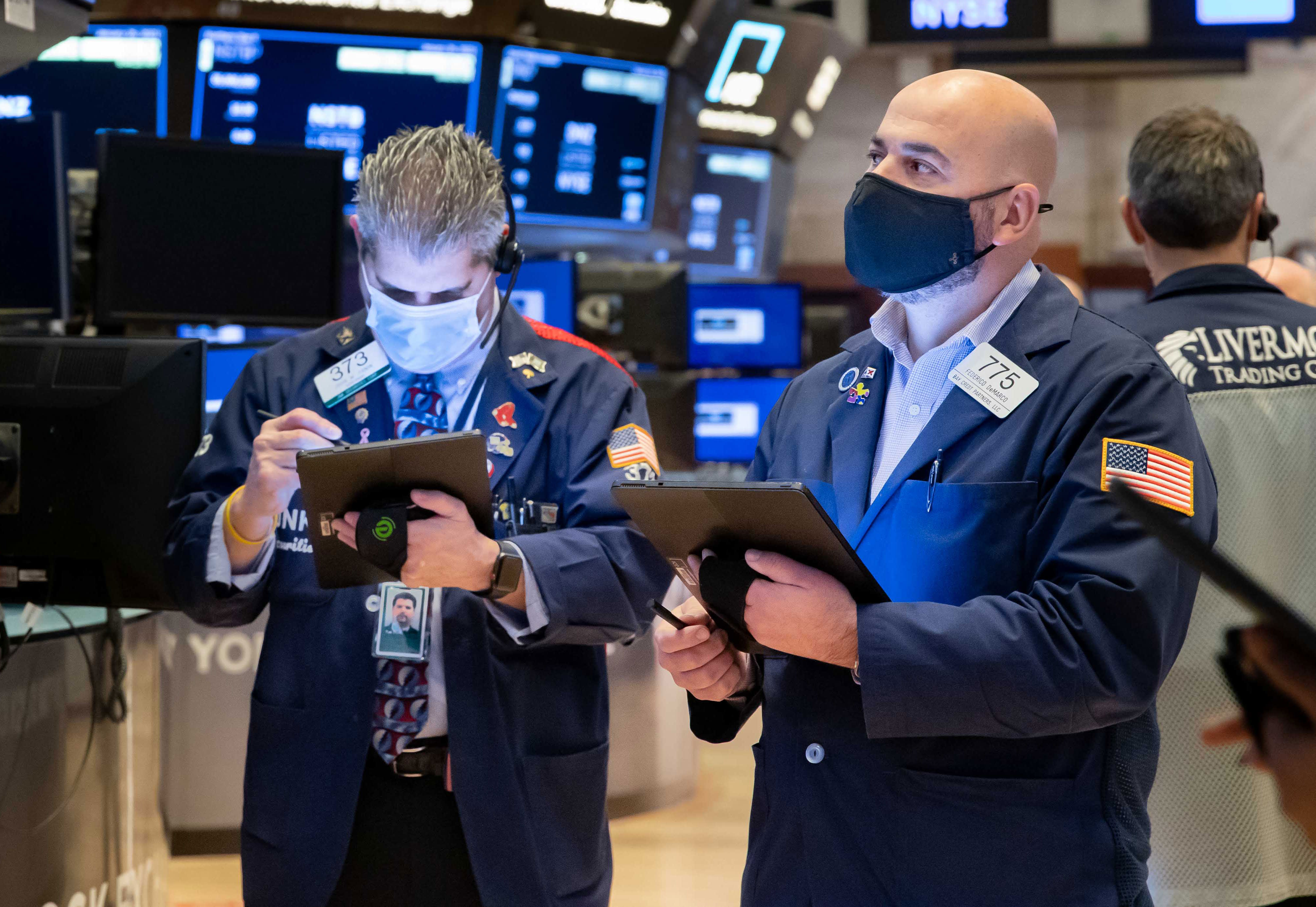Dow falls 350 points, S&P 500 falls 1% from record amid poor earnings, speculative trading

U.S. stocks fell sharply on Wednesday amid weak earnings from Boeing and AMD, along with concern about heightened speculative trading activity.
The Dow Jones Industrial Average lost 377 points, or 1.1%, while the S&P 500 dropped 1.2%. The tech-heavy Nasdaq Composite slid 0.8%. The S&P 500 and the Nasdaq both hit intraday record highs in the previous session.
Boeing fell more than 5% after its earnings report showed 2020 net loss hit a record of $11.9 billion amid the 737 Max grounding and the coronavirus pandemic. Shares of AMD tumbled more than 7% even after the chipmaker posted revenue and earnings that beat Wall Street’s already high expectations.
Intensifying speculative behavior among retail investors is causing concern. Heavily shorted names, including GameStop and AMC Entertainment, continued to be pushed higher by amateur day traders in online chat rooms. Some investors are worried about mounting losses by hedge funds spilling over to other areas of the market as those funds sell other securities to raise cash. Investors are also concerned the speculative behavior is a sign the market is overvalued and a pullback is near.
GameStop shares exploded again, more than doubling on Wednesday. CNBC learned Melvin Capital, the hedge fund targeted by the retail investing crowd on Reddit had sold out of its short position. More hedge funds were facing big losses because of their losing short positions, CNBC’s David Faber reported on Wednesday.
AMC was up more than 300%.
“These moves end when they end, and generally with pain to the winners,” said Gregory Faranello, head of U.S. rates trading at AmeriVet Securities. “Short gamma positions can be very painful. Couple this with large outright bets that go against the hedges that need to happen, and you have a dislocated, parabolic market where buying begets more buying.”
“The Big Short” investor Michael Burry said in a now-deleted tweet Tuesday that trading in GameStop is “unnatural, insane, and dangerous” and there should be “legal and regulatory repercussions.”
The Cboe Volatility Index, known as the VIX or Wall Street’s fear gauge, jump above 28 on Wednesday, hitting its highest level in three weeks.
Wednesday’s market pullback followed a strong rally to records on the back of optimism towards a smooth vaccine rollout and additional fiscal stimulus. The S&P 500 ended last year with back-to-back monthly gains, pushing 2020 returns to more than 16%.
“We’ve run up so much and this is healthy profit taking,” said John Davi, founder and CIO of Astoria Portfolio Advisors. “There has been a tremendous market melt-up in the past two months. When the market goes up parabolically, you will see speculative behaviors from a lot of investors.”
Microsoft was up slightly after reporting a stellar quarter. Sales grew by 17% on a year-over-year basis in its fiscal second quarter, while its cloud business accelerated.
Starbucks topped earnings estimates for the last quarter, but its U.S. same-store sales fell 5% amid rising cases of Covid-19. Shares of the coffee chain fell more than 5%.
Apple, Facebook and Tesla are due to report earnings after the closing bell. They represent three of the six largest companies in the U.S. by market cap, meaning fluctuations in their stock prices have an outsized impact on the performance of the broader S&P 500.
Investors will also keep a close eye on comments from Fed Chairman Jerome Powell, who is expected to speak with reporters during a press conference Wednesday afternoon following the Fed’s latest interest rate decision.
The central bank chief will likely explain how the Fed views the economic outlook and offer remarks about what, if any, monetary actions are needed to help further stabilize the U.S. economy.
Many investors hope Powell and his colleagues will steer clear of the word “tapering,” the process by which the central bank would curb its monthly bond purchases that have helped keep the financial system adrift with cash and encouraged investors to take on risk despite rich equity valuations.




